How do you know someone’s vegan? You probably won’t! Find out why many vegans hide their veganism and how their silence harms all of us. And the potential solution may not be what you’d expect. Essentially, we need to evolve towards a world without vegans.
Despite (and, in many ways, because of) the stereotype that “vegans talk about veganism all the time,” many—if not most—vegans actually won’t talk about veganism. In fact, many vegans won’t disclose that they’re vegan at all.
This article and video explore some of the reasons vegans hide their veganism, offering a look at the other side of vegan stigma, stereotypes, and anti-vegan bias. (And how exhausting it is to be openly vegan!)
But vegans aren’t the only people impacted—we also cover how vegan “self-silencing” (and its causes) harms all of us. Finally, we explore potential solutions that may be surprising—like the need to move towards a world without vegans.
You may have heard some variation of the joke “How do you know someone’s vegan? Don’t worry, they’ll tell you!” Ironically, this joke captures one of the reasons many—if not most—vegans actually won’t tell you they’re vegan. In fact, many vegans put great effort into not talking about veganism at all! tweet this
In this article and video, we’re not only going to look into some of the reasons vegans hide their veganism, but also how this self-silencing—and its causes—harms all of us—vegan or not. And the potential solutions may not be what you’d expect. Essentially, we need to evolve towards a world without vegans.
(Some of) the Many Reasons Vegans Hide Their Veganism
There are many reasons vegans hide their veganism, with diverse, complex, and even conflicting motivations and concerns. While I won’t be able to speak to every individual vegan’s experience, we’ll be exploring common pressures vegans face.
Vegan self-silencing is often motivated by experiences of being “othered,”+“Othering is a phenomenon in which some individuals or groups are defined and labeled as not fitting in within the norms of a social group. It is an effect that influences how people perceive and treat those who are viewed as being part of the in-group versus those who are seen as being part of the out-group.
Othering also involves attributing negative characteristics to people or groups that differentiate them from the perceived normative social group.
It is an “us vs. them” way of thinking about human connections and relationships. This process essentially involves looking at others and saying “they are not like me” or “they are not one of us.””
Source: verywellmind1 yet many of the reasons vegans hide their veganism spring from human needs and desires we all share. And all of those needs can be placed in jeopardy when people learn you’re vegan.
While the first few sections we’ll cover may sound like a commercial for why you should never consider moving away from eating animals, there’s evidence things may be changing. But before we can speak to the solutions and signs of hope, we need to understand the real fears vegans have of disclosing their veganism.
Vegans Can Get a Lot of Hate (Understanding the Fear of Disclosure)
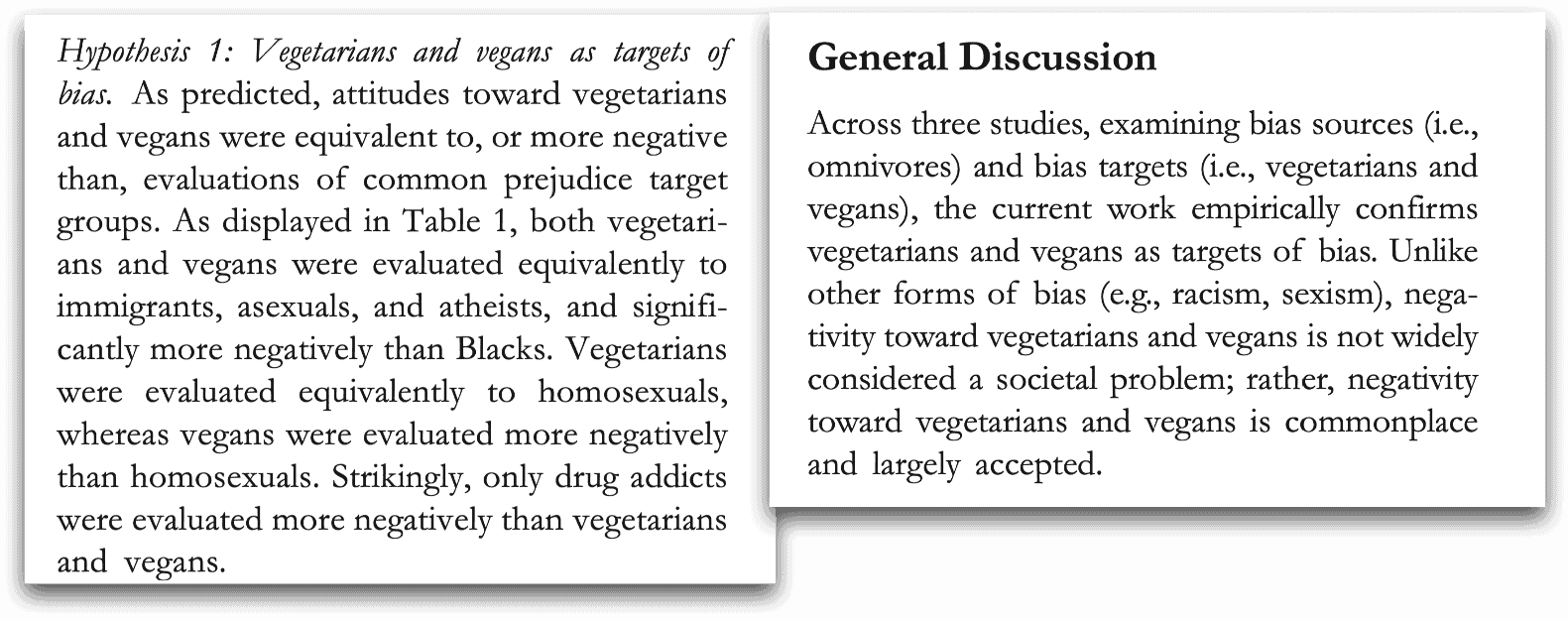
Source: MacInnis, Cara C., and Gordon Hodson. “It Ain’t Easy Eating Greens: Evidence of Bias toward Vegetarians and Vegans from Both Source and Target.”
Research shows that negativity toward vegans is not only widespread but also “largely accepted” and not seen as a societal problem, unlike other forms of bias.2 So, while vegans face bias and even outright hate like other stigmatized groups, their experience is compounded by the fact that hating on vegans is generally acceptable—even socially encouraged.3
Documentary filmmaker Kelly Guerin’s experience of “coming out vegan” was so jarring that she focused her Honors Thesis in Anthropology on better understanding the source of the aggression she encountered:
“I expected my friends and family would mock me as they had done before when I became vegetarian. What I did not expect was the hostility I faced and the almost daily confrontations in which I found myself forced to engage. I was called “freak”, “naïve”, and was even told by one roommate “you should just do the world a favor and kill yourself”.
— Kelly Guerin, from her Anthropology Departmental Honors Thesis
Shockingly, an old friend who had recently turned vegan confided that he found it much harder emotionally to tell people he was a vegan than it was to come out as a homosexual in a conservative middle school. Being an anthropology major, I found these statements both disturbing and fascinating.”4
(paragraph separation added)
In my video and article “The Science of Why People Hate Vegans,” I explore what research—including Guerin’s thesis—has to say about what motivates these kinds of responses. I won’t reiterate that entire video and article here, but one of the key takeaways is that when we take the time to understand the defenses behind such negativity toward vegans, we can see that they primarily arise from a place of personal distress rather than intentional cruelty.5
Learn what’s behind vegan stigma, stereotyping, and anti-vegan bias. This article and video review the growing scientific field of study into why people hate vegans. Interestingly, the underlying drivers of anti-vegan attitudes may point more to promising commonalities than irreconcilable differences.
At the same time, understanding the source of negativity or aggression doesn’t always make being on the receiving end of it any less distressing. Nor does it make that negativity acceptable or not worth addressing.
While it’s helpful for us to lower our own defenses in order to have more effective interactions with people, it’s equally important that we validate how painful, isolating, infuriating, and challenging it can be to be openly vegan in this world.
In understanding all sides, we start to see the common threads of humanity that run throughout our discord.
Vegans Want to Be Judged for Who They Are, Not Who People Think They Are
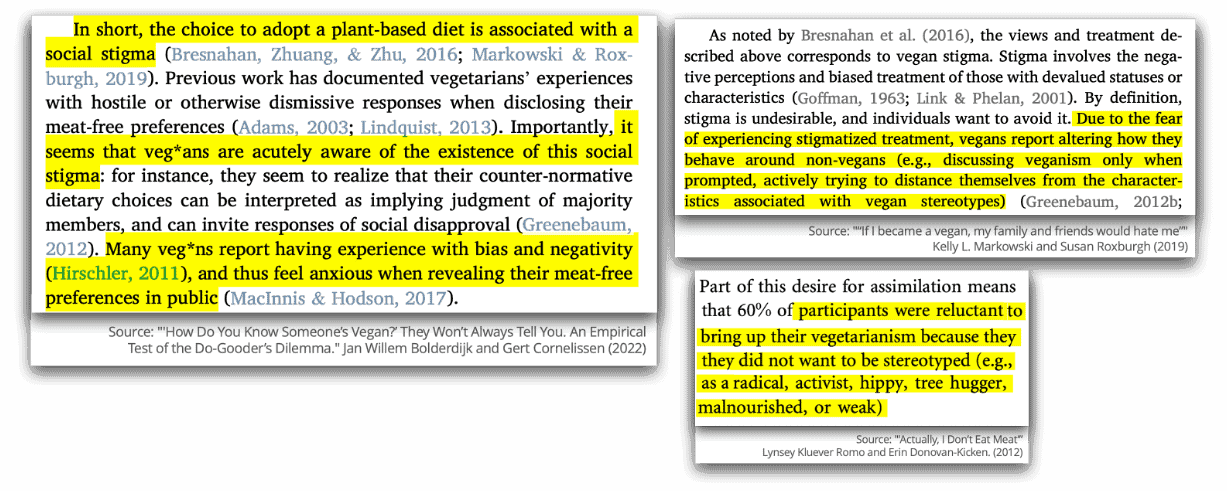
As we’ve discussed, one of the most common reasons vegans self-silence is to avoid stigma and stereotypes.6 Essentially, vegans desire what most of us desire: to be judged for who we are rather than who people think we are.
Studies show that the most prominent negative perception of vegans is that they’re judgmental, self-righteous, and arrogant.7 Some people have had interactions with vegans where they felt judged or attacked—and, let’s be honest, they very well may have been.
If they have to disclose their veganism, vegans are put in the precarious position of trying to preemptively defend themselves from the assumption they’re judgmental while not coming across as judgmental in their defense.
At the same time, research shows that even the gentlest message from a vegan is often received as aggressive,8 and even just the mention of a vegan can put people on guard.9
People often anticipate being judged by vegans,10 which raises their defenses11—and vegans anticipate being seen as judgmental, raising their defenses as well.12
Essentially, vegans can be prejudged as judgmental out of the fear of being judged.
If they have to disclose their veganism, vegans are put in the precarious position of trying to preemptively defend themselves from the assumption they’re judgmental while not coming across as judgmental in their defense.
Vegans may “soften” their veganism to avoid conflict, being stereotyped, and/or to make sure those around them don’t feel judged.13
As one study participant put it, “I have to defend myself and protect them at the same time,”14 speaking to the dual burden of “feel[ing] responsible for making others feel comfortable around her while at the same time…protecting herself from verbal attacks.”15
Many veg*ns+Within research and scientific discourse, veg*ns (or sometimes veg*ans) is used to collectively refer to vegetarians and vegans as one group. feel they must also “balance the tension between staying true to their…beliefs…and fitting in socially,”16 emphasizing that they are proud of who they are and what they believe in.17
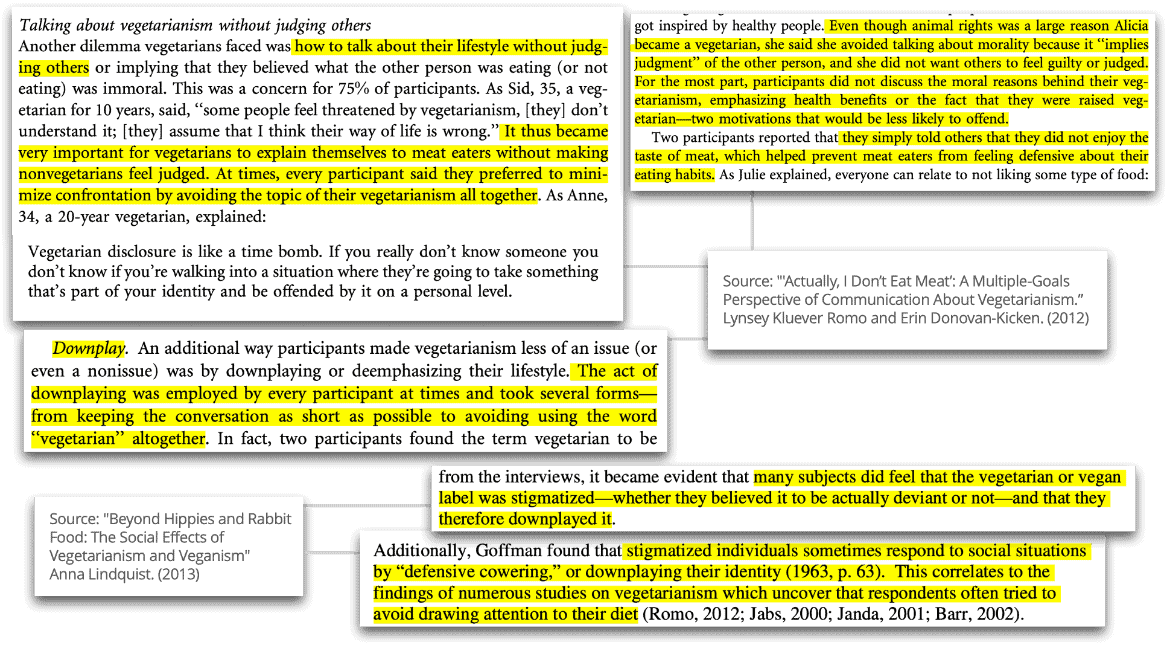
See citation #13 for quoted studies. (download image description)
For some vegans, self-silencing is not so much about fitting in socially as it is the exhaustive demands of explaining themselves,18 which we’ll explore soon in a dedicated section.
Understandably, many vegans just avoid opening the door in the first place.
Ironically, the self-silencing of vegans may actually reinforce some of the very stigmas and stereotypes they are trying to avoid. After all, no one can experience a vegan positively when they don’t know they’re vegan in the first place.
You may have had many positively delightful interactions with vegans and have absolutely no idea!
This is why some vegans take the approach of letting people get to know them first before disclosing that they’re vegan.19 But this isn’t always possible and—for some of us—it’s the people who know us best that have the most painful reactions.
Vegans Don’t Want to Be Rejected, Mocked or Dismissed
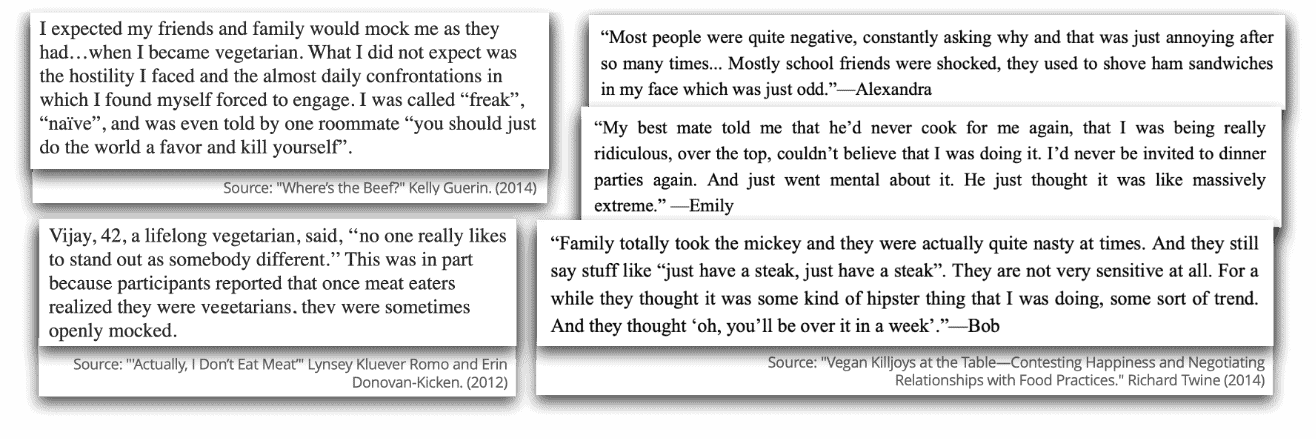
See citation #20 for quoted studies. (download image description)
Another reason vegans self-silence is due to the fear of being rejected, mocked, or dismissed. For many vegans, this fear comes from real-life painful experiences.20 Rejection is something we humans take extreme measures to avoid.
For ethically-motivated vegans, mockery & dismissal of their veganism feels not only like a rejection of who they are, but also like mockery & dismissal of the very real suffering & exploitation of other animals & humans alike, & of pressing issues like the climate crisis.
The pain of rejection is significantly magnified when it’s in response to a core aspect of our identity or a firmly held core value.21 This adds an additional layer for vegans motivated by ethical concerns for other animals, the environment, human rights, and/or societal health.
Mockery and dismissal of their veganism feels not only like a rejection of who they are, but also like mockery and dismissal of the very real suffering and exploitation of other animals and humans alike, and of pressing issues like the climate crisis.
Perhaps the most devastating magnifier of rejection is when it comes from a central figure in our life—especially from within our family of origin. Nothing hits us quite like family does.
Disclosing veganism is often unavoidable with family, and when that disclosure is met with negativity, it often leads vegans to be vigilant about not disclosing their veganism to other people,22 or even returning to eating animals.23
Being Openly Vegan Is EXHAUSTING

Now that we’ve covered some of the complex pressures behind vegan self-silencing with the sincerity and compassion they deserve, let’s take a moment to acknowledge a unifying thread running throughout them all: the fact that frankly, being openly vegan is exhausting.
This is a point that anyone can relate to on some level—vegan or not. One of the reasons people can be uncomfortable around vegans is that they feel they have to defend themselves. Well, for anyone openly vegan, this is a default expectation at all times—and, it’s just the tip of the iceberg.
Imagine having to:
- always be prepared to explain and defend every aspect of veganism
- answer for every action of every vegan as if you are somehow responsible for whatever some vegan somewhere did
- have data and statistics for every potential question
- make sure your responses don’t come across as judgmental or combative—even if you were approached with aggression, and even if you’re being actively judged and preached to while being accused of being judgmental and preachy
- make sure that your responses are suited to the exact individual and situation you’re in
- preserve the relationship if with a friend, family member, work colleague, or boss
- try not to bring in any emotional intensity from your previous experiences of being rejected, mocked, insulted, and disparaged for being vegan
- make sure not to reflect badly on all other vegans and veganism itself
- try not to betray your own convictions, the animals, the planet, or all of society
- do all of this with the knowledge that by answering questions posed to you, you may be accused of “talking about veganism all the time.”
Being openly vegan can feel like having to be a sociologist, psychologist, and walking encyclopedia with expert “skills in emotional and social negotiation”24 and infinite patience and compassion.
Honestly, sometimes you just want to be a person around other people.
While this sounds like a list of reasons you should never consider going vegan or moving away from eating animals, there’s evidence things may be changing. But before we get to that note of hope, let’s look at how vegan self-silencing—and its causes—actually harms all of us.
How Vegan Silencing Harms Us All
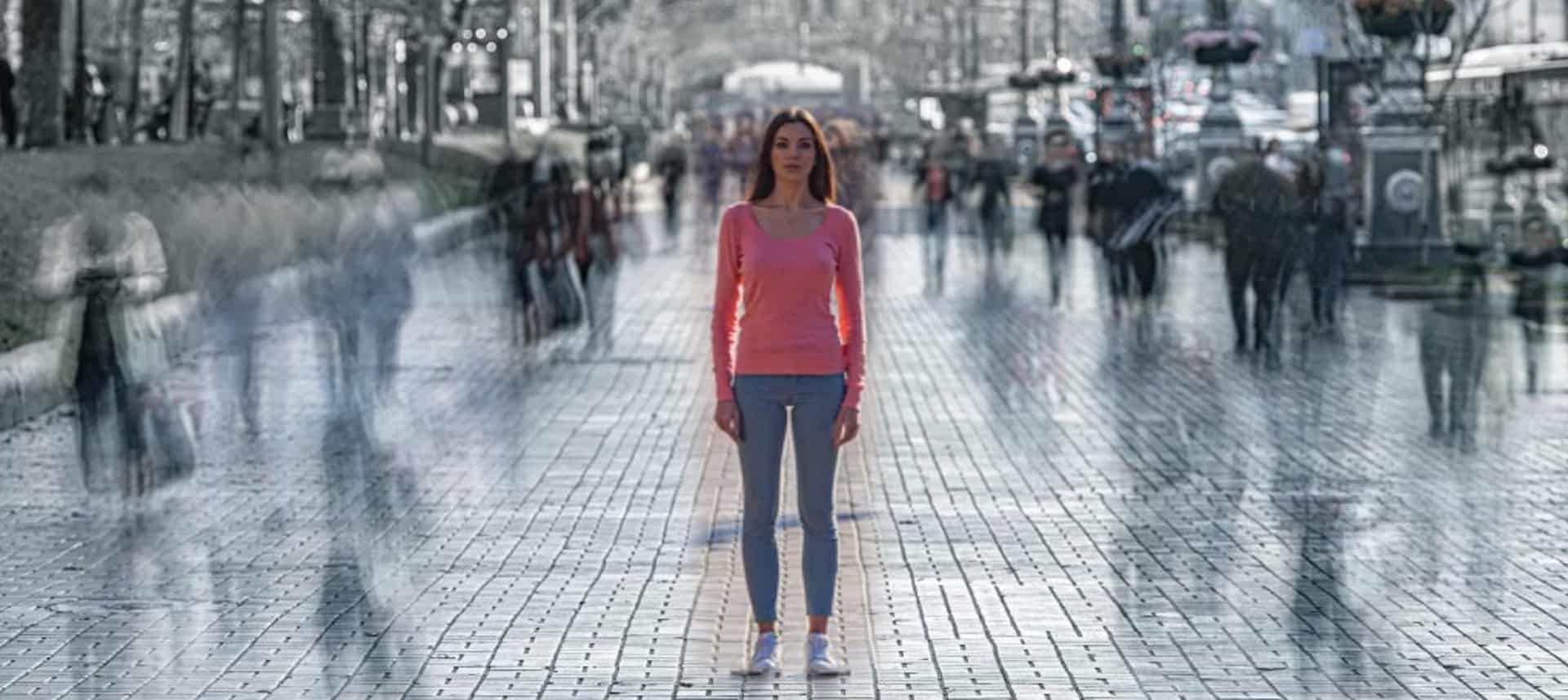
As I’ve hinted at throughout this video and article, the pressures motivating vegans to self-silence—and the act of self-silencing itself—have a larger-scale impact that goes beyond individual vegans.
We as a society are becoming increasingly concerned about climate change, workers’ rights, dangers to our community’s health, food insecurity, and what happens to animals in our food system. The need for a collective evolution away from eating animals is becoming more and more evident for the well-being of our planet, our communities, and of course, the animals themselves.
At the same time, we humans are social animals, and we often look to what most other people are doing to aid in our decision-making (referred to as “social proof”).25 And most people are still eating animals. So even if we feel discomfort about what animals go through to get to our plate or we’re concerned about the climate, it doesn’t look like other people are that worried.
Social proof refers to our tendency to follow the behaviors and beliefs of others when making decisions. The term was coined by psychologist Robert Cialdini, who explained the phenomenon as “one means we use to determine what is correct is to find out what other people think is correct.”26
In their paper “Harnessing Moral Psychology to Reduce Meat Consumption,” researchers Joshua May and Victor Kumar argue that social proof is a strong influence on people’s decision to continue eating animals:
“It is not just willful ignorance and rationalization that fuel tolerance of factory farms. The fact that excessive meat consumption is commonplace does not just encourage apathy: it serves as positive social proof that it is acceptable, that nothing is morally amiss. Indeed, our social context leads many of us to conclude that it is morally obligatory to eat meat, because it is an essential component of Grandma’s casserole, Mexican cuisine, or a masculine diet.”27
Essentially, because we see most people eat animals, it signals that eating animals is not only not morally problematic but completely normal and even necessary.
Researchers behind the delightfully named study “”How do you know someone’s vegan?” They won’t always tell you” propose that vegan self-silencing could reinforce this perception that not eating animals is some “niche phenomenon” only adopted by a few people on the fringe of society.28
While it may seem like a small matter for individual vegans to stay silent about their veganism, the study authors reference how “[s]eemingly trivial differences in the number of people that hold a certain personal preference within smaller groups can, in the long run, result in macro-level consequences for entire societies.”29
We often look to what most other people are doing to aid in our decision-making. And most people are still eating animals.
So even if we feel discomfort about what animals go through, or we’re concerned about the climate, it doesn’t look like other people are that worried.
From this viewpoint, “[t]he tendency to self-silence among veg*ans may prevent the onset of momentum and[…]critical mass that is needed to achieve a societal tipping point.”30
At the same time, simply asking vegans to be more vocal about their veganism places them in the Catch-22 of eliciting the very stigma we’ve covered.
At the core of it, the problem isn’t so much vegan self-silencing, but rather the reasons driving that silence. As we’ve learned in this video and article, going against social norms can have social consequences.
Research shows that the fear of receiving the same treatment as vegans prevents other people from taking steps to move away from eating animals. Steps they’d be open to exploring were it not for the potential social backlash.
This may seem like an impossible gridlock of necessary yet understandably resisted change. But there is evidence that things may be shifting.
Changing Norms: Toward a World Without “Vegans”

Researchers, advocates, political leaders, and organizations are becoming aware of the importance of institutional support for a societal evolution away from farming animals.31 A shift in our collective relationship with eating animals has to involve more than us as individuals, and there are organizations working at a systemic level in an effort that none of us have to shoulder this alone.+These are examples of organizations working to support institutional shifts away from animal-based foods, largely through a focus on shifting social norms. This is not an exhaustive list by any means. Find more out about their programs on their websites:
> The Better Food Foundation
> Greener by Default (from BFF)
> Forward Food
> Pro-Animal Future (pilot program based on Pax Fauna’s research)
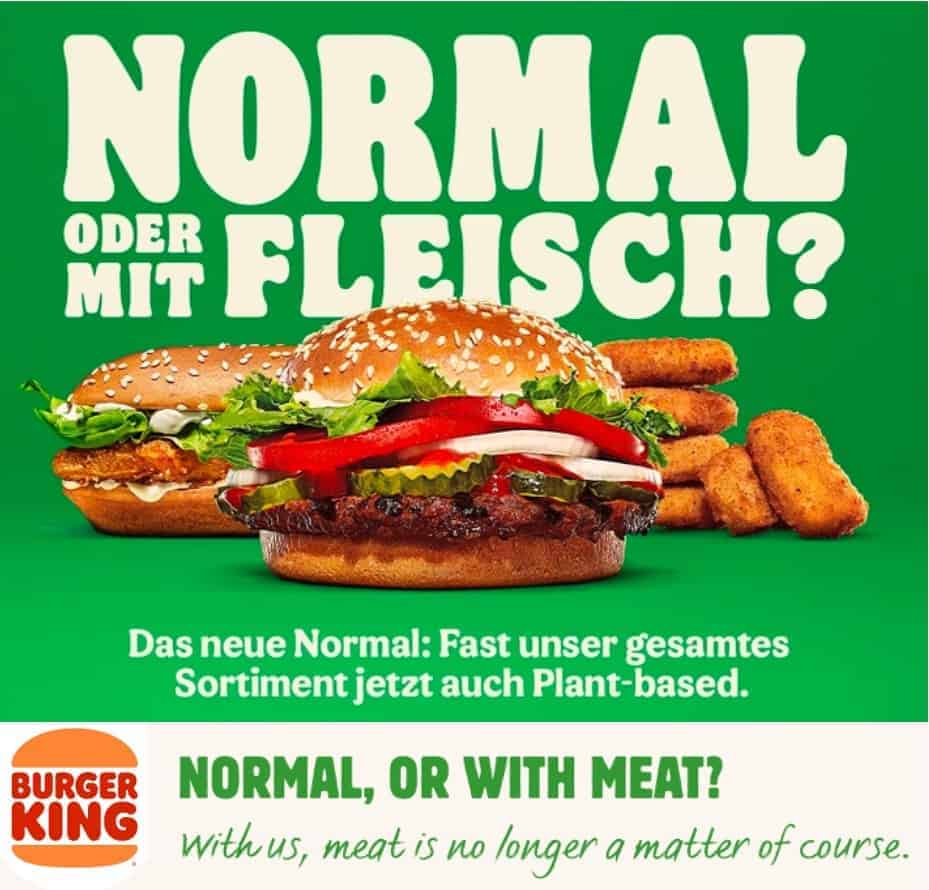
For example, some universities,32 hospitals,33 schools,34 governmental bodies,35 businesses,36 and even fast-food chains37 serve plant-based food as their default,38 with the option to “opt-in” to animal-based food.39
These programs have shown a significant decrease in animal food consumption, and changing attitudes about plant-based foods.40
They’ve found that when not eating animals is the norm rather than the deviation, people—including meat-eaters—are more likely to enjoy eating plant-based meals.41
In essence, rather than moving towards a world where everyone is vegan, we need to move to a world without “vegans” at all—where not eating animals is simply our default. Where we can all collectively act on our shared values without fear of going it alone.
On an individual level, the less we stigmatize and stereotype vegans—or anyone’s effort to move away from eating animals—the more welcome people will feel to be open about their choices. And the more we see other people acting on the things we also care about, the more welcome we can feel to make our own changes.
Rather than moving towards a world where everyone is vegan, we need to move to a world without “vegans” at all.
A world where not eating animals is simply our default. Where we can all collectively act on our shared values without fear of going it alone.
tweet this— Emily Moran Barwick
In Closing…
I hope this article and video help to validate vegans while also offering other people an inside look at what it’s like on the other side of the stereotypes, assumptions, and stigmas. And how these biases impact our greater society and collective interests.
I would love to hear your thoughts on all we covered in the comments!
To stay in the loop about new Bite Size Vegan content and updates, please sign up for the newsletter or follow the Telegram channel for the most reliable notifications.
To support educational content like this, please consider making a donation. Now go live vegan, and I’ll see you soon.
— Emily Moran Barwick


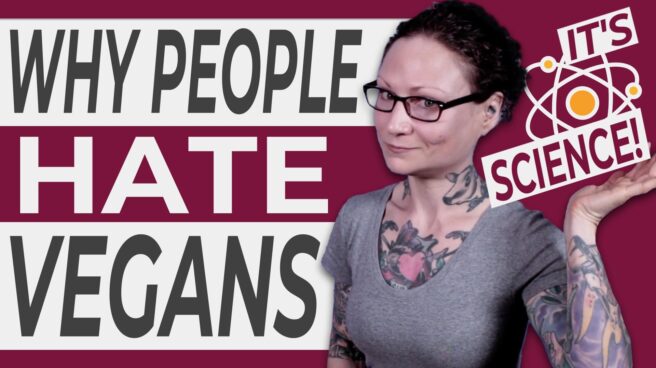
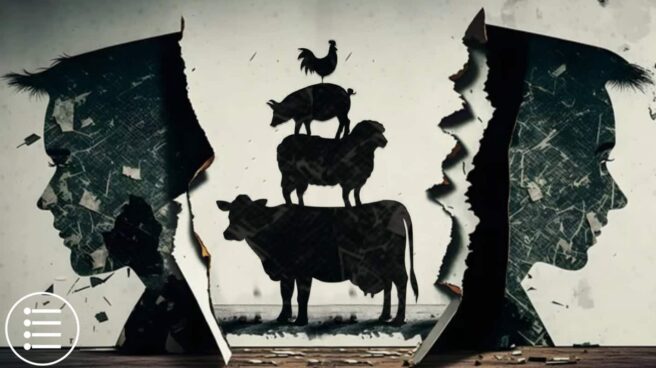
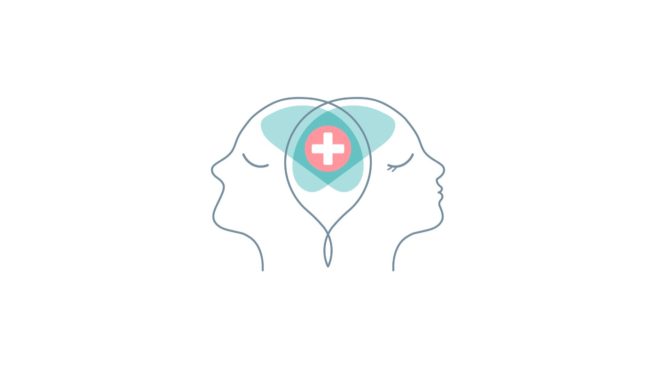
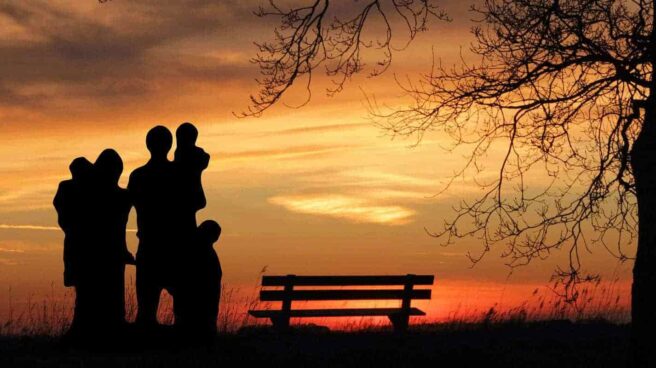
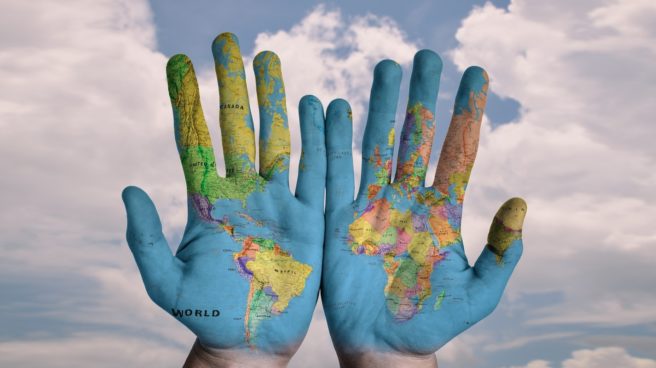
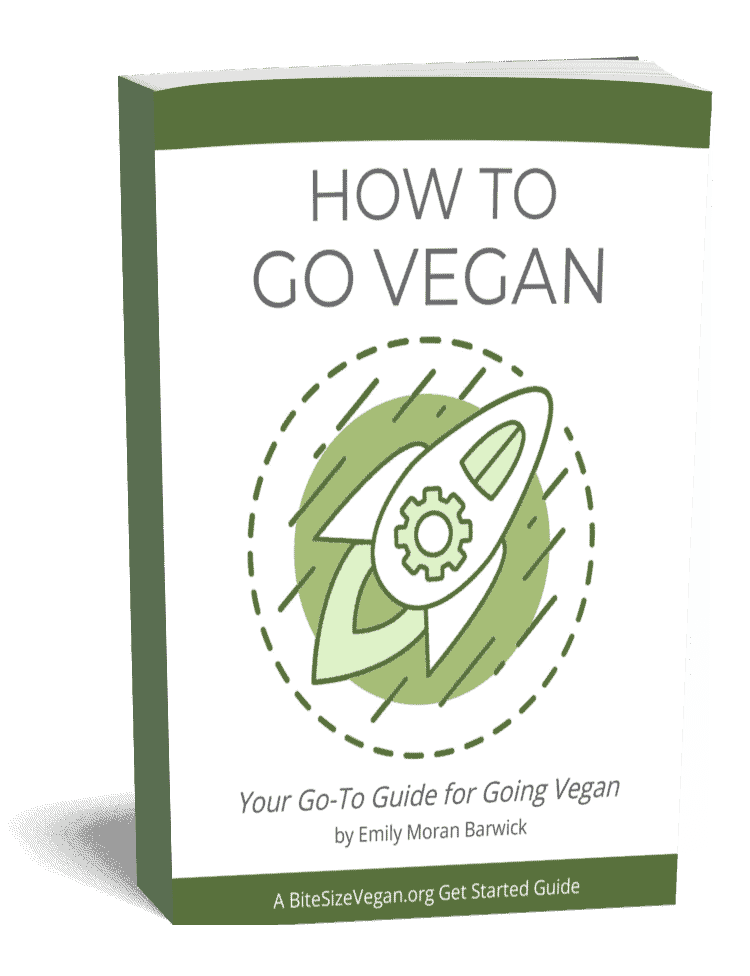
Emily, this is quite a powerful companion to your video and article on “The Science of Why People Hate Vegans”. I’m so grateful that you’ve given such care to not just validate the experience of vegans, but do so in a way that (I feel) is relatable to people who are not vegan. That’s quite a nuanced line that I think you walk beautifully! It is so easy to become embittered as a vegan. I commend you on maintaining such empathy and careful consideration of the framing and delivery of your messages. I also greatly appreciated the depth you took this topic to! I was not expecting the final sections and will be having a think for a while about the re-framing you mentioned. Thank you, as always, for your work.
Anesh, as always, I’m honored by your thoughtful and kind feedback. I did indeed strive to present this in a manner that would (ideally) help people understand the vegan experience (which can certainly lead to embitterment!) without coming from a “charged” place. Though, to be fair, the section “why being openly vegan is EXHAUSTING” is where I kind of do have a little catharsis, but I hope by that point in the video it’s more “earned.” I also wanted to be sure that (as I say a few times in the video) this didn’t come across as a commercial for never doing vegan or not eating animals. It’s always a challenging balancing act to hold all these considerations at once! I’m grateful to hear this came across for you. And I always appreciate, too, that you come check out the website article. The nerd in me so appreciates it! :)
Hi, Emily,
Thank you for another great video. Your videos are so educational, important and sometimes humorous. (I’m excluding the serious things such as slaughterhouses, of course.)
You address numerous aspects of veganism and I find your information and suggestions to be very helpful.
Take care,
Randy
Thank you so much, Randy! I’m honored to hear this. I do strive for a balance of education, solid info, but also introducing humor where possible and appropriate. A lot of these topics are so heavy that some levity can be helpful for everyone! Thank you for taking the time to comment. I really appreciate it.
Another brilliant, insightful, and helpful video Emily. I will be watching this more than once as there is a lot to take in. It is good to have these difficulties articulated out loud and for it to be confirmed by research that these are common experiences shared by many vegans and not just my own life experiences. It can be isolating, but then I remind myself that this is the most important step I have taken in my life and I am sticking by it! To paraphrase Bernard Shaw (British vegetarian playwright), I would like to have all the animals I have not eaten, worn, or abused present at my funeral. Thanks, Emily – you are a gem :)!
Thank you so much, Wendy! I’m so honored to hear this. I’m very glad to know this was validating for you. It can be isolating (among other challenges) to be vegan in a non-vegan world. I’ve always said that’s the hardest part of being vegan, after all! And the research and other people’s testimonials back that up. There’s one quote I was trying to find a way to include, but wasn’t able to. It’s from one of the studies that interviewed vegans:
“Jon’s response to the question “What’s it like being vegan?” reveals the greatest challenge faced by vegans. Without hesitation, Jon replied, “The first thing that comes to my mind, the social difficulty of veganism and the personal ease of veganism.””
I loved that. The “personal ease” meaning the actual “being vegan” isn’t the challenge for him…it’s the social difficulty. That’s from: Hirschler, Christopher A. “‘What Pushed Me over the Edge Was a Deer Hunter’: Being Vegan in North America.” Society & Animals 19, no. 2 (2011): 156–74.
Dear Emily,
I did enjoy this very informative article. I did learn a lot about social proof which I was not familiar with. In a social setting I do get the occasional comments when I refuse an item on the menu that is meat or fish. I also realize that not everyone understands veganism or vegetarian. One man said it was nice I have a hobby and another felt sorry for me because I won’t be having turkey for Thanksgiving when I explained it is my choice or as to why I don’t eat turkey or chicken. I am glad that animal agriculture is being discussed as a contributor to climate change. I do wish for a world where not eating animals is simply our default.
Thank you, as always, Sally Anne for your thoughtful reply. I’m glad to hear the social proof was some new information for you. It is an interesting phenomenon. Oh man, the “hobby” comment is quite a rough one! And the climate change space could certainly benefit from MORE discussion of animal agriculture… I too would love a world where we don’t even need the word “vegan” anymore. How beautiful.
I have 2 quick stories on self-silencing and being a vegan can be exhausting. 1) I posted on a vegan friendly FB page that this time of year is tough when I got triggered in a grocery store. When I thought I was in a safe space, I was mocked by comments like, “this is why people don’t like vegan” and “ugh” and “what’s funny about this post?”
2) I went to a company event and was asked why I was vegan. As I get closer to 60, I do find it exhausting to have defend myself to people who seem to be asking for the helluva it and already have made up their minds that they “could never go vegan, give up cheese”, etc.
Sharon, thank you for sharing your experiences—though I’m sorry to hear you’ve had them. As much as the advent of social media and the internet have provided ways for use to connect with each other over distances, and for the increased accessibility of information, there are also plenty of problematic aspects. Much of social media spaces (and the algorithms driving them) are built around reactivity. They are charged spaces often fueled by what agitates us most. Though, as you’ve shared, these experiences are not limited to the digital space. And after so much of being on the receiving end of even the well-meaning comments, they can certainly wear you down over time. This then can lead to what LOOKS like oversized reactions. When it’s more so an accumulation…the proverbial “death by a thousand cuts”. It may be of little comfort, but know that you are not alone in this exhaustion.
This experience is echoed by all stigmatized individuals. A few of the studies I referenced in this video draw parallels of other stigmatized groups and the experience of veg*ns. Two I am thinking of offhand are ““Actually, I Don’t Eat Meat”: A MultipleGoals Perspective of Communication About Vegetarianism” and “Managing Impressions: ‘‘Face-Saving’’ Strategies of Vegetarians and Vegans”. You can find both in my bibliography if you’d like to look into them at all. I’m happy to send you the full-text PDFs if they aren’t available. Feel free to just reply and I’ll do so! Thank you again for sharing. Sending you much love.
Emily, I am one of those obnoxious, judgmental, self-proclaiming vegans and proud of it. I sadly live among meat eaters and am constantly sitting at tables with plates of dead animals, including dead babies. Yes, I could sit alone at home and have no social life, but it’s a painful choice to make either way. I’m getting angrier and angrier – not healthy.
I will, however, continue to stand on my soap box and try to make even a modicum of inroads in the hope that for someone at some time the light will go on.
Thank you for your wonderful, creative, clever videos!
I hear you, Freya. It is a painful choice…and one with so much complexity and wherein we often face “cons” with any direction we choose. You’re also very much not alone in feeling more and more angry and embittered. This is something spoken about (not enough) in some of the scientific literature and within the activism community. I do think it needs far more attention. If you want to read one of the studies speking to embitterment, there is “Dietary identity and embitterment among vegans, vegetarians and omnivores” though it’s more clinical…but may still provide some points of validation.
It’s such an additional layer of challenge that these experiences lead to embitterment, which can (understandably) lead to us more and more embodying the very stereotype we’re accused of regardless of behavior. It’s also unfortunate that being outspoken about very real injustice itself is stigmatized. That caring is criticized. That advocating for things in everyone’s interest is painted as anti-human. That wanting to cause the LEAST harm possible is seen as extreme. When we look at the psychosocial defenses behind it, it DOES make sense. And that’s where we face the challenge of how to work with and through those defenses. But, in a very real sense, it still doesn’t make them any easier to encounter in our lives. And continues to place vegans in the impossible role of psychologist, sociologist, advocate, expert, negotiator, and everything else. Thank you again for taking the time to share.
Your remarks about no longer having vegans resonated with me. I think that’s going to be my comment when people want to talk about my veganism. I’m looking forward to the day when exploiting animals is no longer the norm and being vegan is the new normal and I will no longer have to defend myself! Frankly, I have no problem telling people I’m vegan, but I do have a group of friends who have made it quite uncomfortable for me, but less so as I’ve reached the eight year mark. I guess they no longer think it’s a fad and that I’ll grow out of it. I’m 72 now and 64 when I went vegan so my group of friends are well entrenched in animal consumption. There’s so much talk about the Colorado River being able to supply adequate water for multiple states and I like educating people that if we didn’t grow the hay, alfalfa, etc. to feed the livestock, we could save 55% of the water from the Colorado River. Now, that’s a pretty good reason for going vegan in and of itself. Thanks, Emily, for all your great videos. I always look forward to them.
Melanie, thank you so much for taking the time to comment. I’m glad to hear this resonated with you. Yes, wouldn’t it be incredible to one day not even need the word “vegan” at all! Because we collectively just don’t exploit animals anymore as our default. Honestly, I believe the majority of humanity would be on board for that world. It’s just too much for any individual to take on…the systems we’ve created are built upon our unexamined exploitation of other animals, our planet, and our own communities.
I totally identify with the expectation of “growing out of it”—I think many vegans have had their veganism dismissed in that way, especially by family. And yes, it can be a bit baffling with so much attention to issues like climate change, water shortages, etc that animal agriculture has an outsized influence upon…yet is (almost always) absent from the discussion. I mean, I understand why it’s absent. But the logic-and-consistency-loving part of me always just wants people to “see” it :) Thank you again for commenting. And honored that you enjoy my content.
A potential issue for so-called ‘quiet vegans’ is that those who aren’t quiet at all are oftentimes engaging in publicity stunts or protests in which graphic images are displayed offending parents of young children and those (like my wife) that get offended on their behalf.
Vegans that live in a society comprised of over 99% non-vegans (as I certainly do) gain nothing by being ostracised as an ‘extremist’ but it leaves one with no viable circumstances to bring the topic up at all.
Don’t misunderstand me, I support activism in general and understand the purpose though some of it inevitably is counterproductive.
My question is how to we get the message to parents and children that the happy animals propaganda is exactly that, propaganda, without resorting to imagery that causes people to switch off altogether?
If Disney animal characters were having their young piglets, calves, chicks etc taken away from them (in an otherwise ordinary storyline) with the narrative that these were going to be someone’s bacon, burger and chicken nuggets without any graphic imagery this could be more impactful. Then just continue on with the story albeit with the characters mourning the loss of their children for a reason they don’t understand.
Play the animal agriculture sector at their own game. I realise that the above would also trigger many but they couldn’t complain that their children had been exposed to graphic imagery.
Just a thought.
Thank you so much for your sincerity and compassion for vegans and bringing us some light. I’ve never imagined being vegan in certain countries can be so difficult. This certainly makes unfairness getting even deeper. I feel for you and others. In our country, people all eat animal products, but no one don’t hate vegan, they hate homesexual which is the opposite with other countries I guess. Hoping more and more institutions make not eating animals the default as described, it’s a great solution for changing our eating choice.
Thank you for taking the time to comment, Chris. It would be amazing to one day live in a world where not eating animals is just our normal!